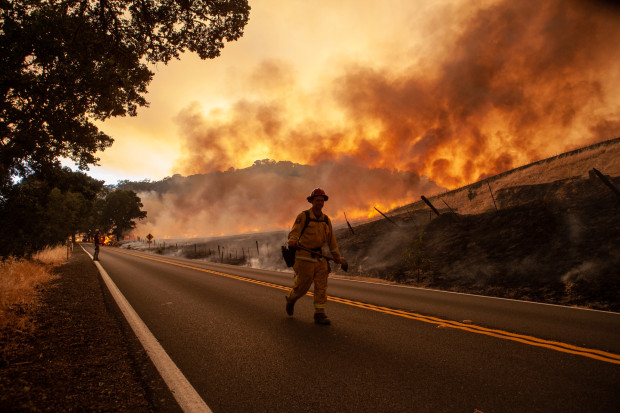How Climate Change is Responsible for Extreme Weather Conditions???
The late spring of 2018 has not
been an ordinary late spring. All through June and July an expanded heat wave
set record-breaking high temperatures over the northern side of the equator. In
Japan, in excess of 22,000 individuals were taken to hospitals with warm stroke
as the nation recorded its most noteworthy ever temperature of 41.1 degrees
Celsius. In California, Portugal and as far north as the Arctic Circle
tremendous fierce blazes, energized by long stretches of curiously dry
conditions, took after the singing warmth.
For quite a long time, climatologists
solicited to clarify this kind from outrageous events have fallen back on a
well-worn phrase. "It’s impossible to attribute a single weather event to
climate change," the refrain goes. And they are absolutely correct,
Weather is obviously unpredictable by its nature-extreme events will always
happen in one or more places, because of global temperature levels and it can
be done by lots of reasons and not necessarily tied to one particular cause.
Up until a couple of years prior,
it wasn't quite impossible to draw that link with any degree of accuracy, Otto
says. But in 2004, Pete Stott at the UK Met office published an abstract in the
scientific journal Nature giving a signal that climate
change had at least doubled the risk of the 2003 European heat wave that
killed approximately tens of thousands of people. The main aim of the project
wasn’t only draw a link between events and climate change, but to get the
answers when the extreme weather event was actually occurring by provide this
analysis in real-time.
"For a vast part of the
world it's as yet another or new science," she says. However, this
developing field could assist governments to help to figure it out that what
might happen on the future instead of thinking about the past that what has
happened. Otto says, if you only look at the past you will not get the correct
answer. At that moment the WWA’s analyses compare a world with one degree of warming
to a world with no warming. But also Otto runs models that if the weather will
change and warms by more one degree are projected to happen by the end of this
century.
Also, it's these outrageous weather
events that we should focus on – not only on the major points of global
temperature increases. “Global mean temperature doesn’t kill anybody,’’ Otto
says. ‘’It’s extreme events that only kill people.’’




Comments
Post a Comment